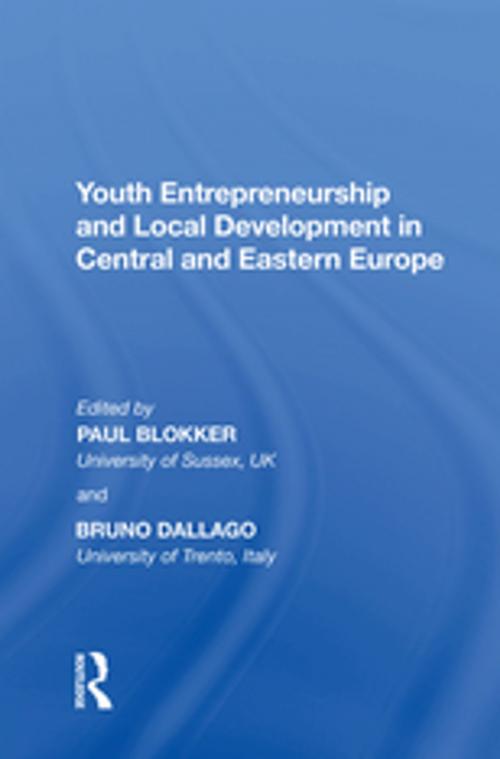Youth Entrepreneurship and Local Development in Central and Eastern Europe
Business & Finance, Management & Leadership, Management| Author: | Bruno Dallago | ISBN: | 9781351142625 |
| Publisher: | Taylor and Francis | Publication: | November 30, 2017 |
| Imprint: | Routledge | Language: | English |
| Author: | Bruno Dallago |
| ISBN: | 9781351142625 |
| Publisher: | Taylor and Francis |
| Publication: | November 30, 2017 |
| Imprint: | Routledge |
| Language: | English |
This book analyses the opportunities and barriers for youth entrepreneurship amid systemic change in Central and Eastern Europe. The authors cover different aspects of youth entrepreneurship and its contribution to the debate on youth unemployment in transition economies. The book discusses the wide-spread over-optimism regarding youth entrepreneurship, self-employment, and its impact on economic innovation and job creation, resulting from a disregard of critical contextual features and the characteristics of young entrepreneurs themselves. The authors give due acknowledgment of the importance of both factors and so fully understand the impediments to youth entrepreneurship, especially in a transition context. Furthermore, they seek to assess the opportunities and constraints of promotion policies in transition economies. Most importantly, the book provides the first empirical contribution to youth entrepreneurship in Central and Eastern Europe by offering a representative number of case studies. The book will be invaluable reading for scholars and students of transition and developing countries, particularly those with an interest in entrepreneurship.
This book analyses the opportunities and barriers for youth entrepreneurship amid systemic change in Central and Eastern Europe. The authors cover different aspects of youth entrepreneurship and its contribution to the debate on youth unemployment in transition economies. The book discusses the wide-spread over-optimism regarding youth entrepreneurship, self-employment, and its impact on economic innovation and job creation, resulting from a disregard of critical contextual features and the characteristics of young entrepreneurs themselves. The authors give due acknowledgment of the importance of both factors and so fully understand the impediments to youth entrepreneurship, especially in a transition context. Furthermore, they seek to assess the opportunities and constraints of promotion policies in transition economies. Most importantly, the book provides the first empirical contribution to youth entrepreneurship in Central and Eastern Europe by offering a representative number of case studies. The book will be invaluable reading for scholars and students of transition and developing countries, particularly those with an interest in entrepreneurship.















